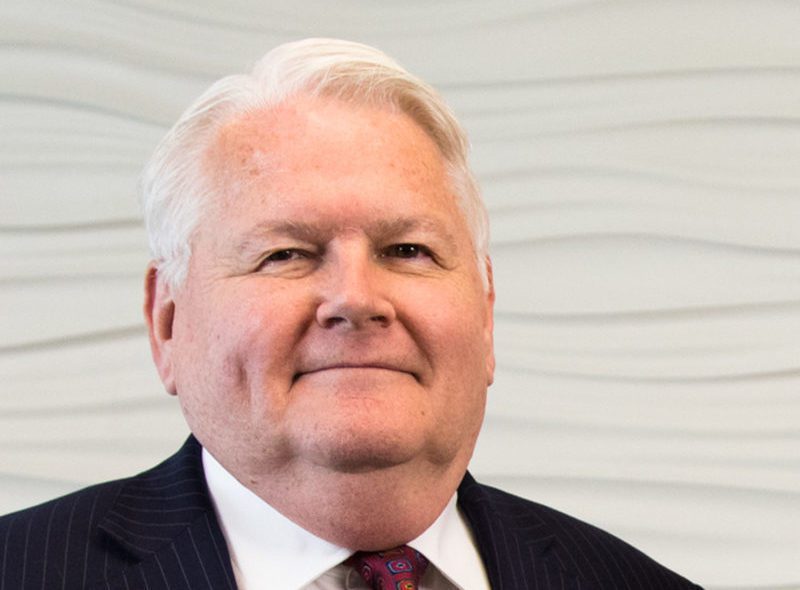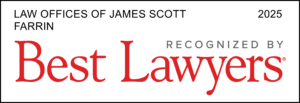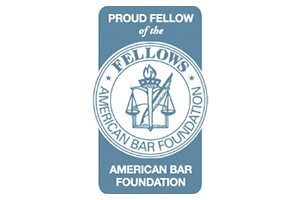
“At its core, law is about representing people, helping people, understanding people, and having empathy. And that’s what is so gratifying to me.”
Attorney Gary W. Jackson**
Gary Jackson** joined the Law Offices of James Scott Farrin in 2017. He is a formidable trial lawyer and a natural leader. He has served as president of the North Carolina Advocates for Justice and has held leadership positions in several other national and state organizations.
Returning to North Carolina to Fight for Those Who Have Been Wronged
Gary, a Blue Devil who earned both his undergraduate degree and J.D. from Duke University, started his law career on the West Coast. He clerked for a federal judge and was later recruited by one of the largest law firms in the U.S., which sent him to the prestigious Harvard Negotiation Program before utilizing his skills in its New York offices. Gary also participated in pro bono efforts to help the families of 9/11 victims through the federal Victims’ Compensation Fund.
Gary eventually tired of the northern winters and returned to practice law in North Carolina. He sharpened his trial skills at a large defense firm litigating R.J. Reynolds Tobacco cases. It was there that Gary “further developed his professional conscience.” Soon, Gary began to consider leaving the corporate defense side and working on behalf of individual plaintiffs.
Gary joined a Charlotte plaintiffs’ firm and became the lead attorney on cases involving defective synthetic stucco that was causing homes to rot. However, the firm decided after a year that it no longer wanted to devote time and resources to the cases.
Gary strongly disagreed – he wanted to fight for the homeowners so he took the synthetic stucco cases to another law firm, where he kept building evidence against the manufacturers and builders. Gary even took a leap of faith and cashed out his 401(k) to keep the cases afloat.
These cases numbered in the hundreds, and they settled for substantial sums.1 But it wasn’t about the money for Gary. It was about fighting for the rights of those who have been wronged.
Earning Well-Deserved Recognition
With more than 40 years of experience as a successful litigator trying multiple multimillion dollar cases, Gary is a recognized name throughout the legal community of North Carolina and beyond.1 He has been frequently asked to speak throughout the country at educational programs for lawyers, and he has regularly authored articles addressing current legal trends and developments.
From 2020 to 2025, Gary was selected by his peers for inclusion on the Best Lawyers in America “Best Lawyers” list for Litigation.4 North Carolina Super Lawyers magazine has honored Gary on the “Super Lawyer” list every year from 2006-2025 for Class Actions.4
Since 2011, Gary has been recognized as a Fellow of the American Bar Foundation, which accepts only 1% of lawyers licensed to practice in each jurisdiction. He is a charter fellow of the Litigation Counsel of America and holds an AV pre-eminent rating (their highest peer-review rating) from Martindale-Hubbell.4
Gary was invited by noted trial lawyer Gerry Spence to his nationally acclaimed Trial Lawyers College on his Wyoming ranch in 2012. This unique institution is dedicated to helping lawyers and judges “obtain justice for individuals; the poor, the injured, the forgotten, the voiceless, the defenseless and the damned, and to protecting the rights of such people from corporate and government oppression.”5
Throughout his law career, Gary has tried cases in the areas of consumer protection, construction litigation, business litigation, class actions, mass torts, products liability, medical negligence, nursing home negligence, estate disputes, and whistleblower claims. Gary has often been tapped by other law firms as co-counsel on tough cases.
Relaxing Back at Home
Gary claims that his two sons, who were adopted from Russia when they were a few months old, keep him young. When he’s not in the courthouse or at the office, he can often be found spending time reading, traveling, following politics, cooking, and watching sports events with the oldest at their Durham home near Duke’s East campus.
Read More
- Business NC: Op/Ed: Higher tariffs mean more fraud, more need for watchdogs
- Court Grants Class Certification in Winston Weaver Fire Case; Gary Jackson of the Law Offices of James Scott Farrin Appointed Co-Lead Counsel
- Law Offices of James Scott Farrin Attorneys Recognized on 2025 "North Carolina Super Lawyers" Lists4
- NC Health News: Three years on, still assessing the health, legal aspects of Winston-Salem fertilizer plant fire
- WFDD: Judge to decide whether lawsuit related to fertilizer plant fire can proceed
- Carolina Whistleblower Attorneys' Gary Jackson Warns of Fraud After Hurricane Helene and Medicaid Expansion
- Carolina Public Process: Beware of scams in Western NC after Helene
- Duke Chronicle: Five years after landmark case, Duke researchers must be alert
- Carolina Journal: NC Medicaid expansion is hotbed for financial foul play
- 22 James Scott Farrin Attorneys Recognized by "Best Lawyers in America" on 2025 'Best Lawyers' and 'Ones to Watch' Lists4
- 29 James Scott Farrin Attorneys Recognized by "Best Lawyers in America" on 2024 'Best Lawyers' and 'Ones to Watch' Lists4
- Four James Scott Farrin Attorneys Named by "Super Lawyers" to 2024 North Carolina 'Super Lawyers' list4
- Neglect at Weaver plant in Winston-Salem may have multiplied explosion risk, documents show
- Five James Scott Farrin Attorneys Recognized on “Super Lawyers” 2023 North Carolina ‘Super Lawyers’ and ‘Rising Stars’ Lists4
- James Scott Farrin Named to "U.S. News - Best Lawyers" 2023 'Best Law Firms' List, 8th Straight Year4
- WakeMed faces class action lawsuit for alleged Meta Pixel data breach
- 21 James Scott Farrin Attorneys Recognized by "Best Lawyers in America"4
- Winston Weaver Co. faces class-action lawsuit over fertilizer plant fire
- The Law Offices of James Scott Farrin Filed a Class Action Lawsuit Against Winston Weaver Company, Inc.
- Class action approval sought in new lawsuit filed against Winston Weaver
- Lawsuit accuses fertilizer company of gross negligence in Winston-Salem fire
- North Carolina “Super Lawyers” Recognizes 3 James Scott Farrin Attorneys on 2022 ‘Super Lawyers’ and ‘Rising Stars’ Lists4
- James Scott Farrin Lawyers Named to 2022 “Best Lawyers,” “Best Lawyers: Ones to Watch,” List, One Named a “Lawyer of the Year”4
- Four James Scott Farrin Attorneys Inducted into 2020 North Carolina Pro Bono Honor Society
- 2020 North Carolina Pro Bono Honor Society Inductee
- Four James Scott Farrin Attorneys Recognized in 2021 North Carolina ‘Super Lawyers’ and ‘Rising Star’ Lists4
- James Scott Farrin Lawyers Named to 2021 'Best Lawyers' and 'Best Lawyers: Ones to Watch' Lists4
- NC Debt Collector Pays $1.2 Million1 for Alleged Unlawful Contact4
- Three James Scott Farrin Attorneys Named to 2020 'North Carolina Super Lawyers' List4
- ABC11: NC Attorney General investigating OBX rental company for refusing vacation refunds amid COVID-19
- ABC11's investigative special on the state of public housing in Durham
- Potential Lawsuits Grow as GenX Concerns Escalate
For legal reasons and client confidentiality, reviews have been slightly edited to remove identifying information and correct typos.





